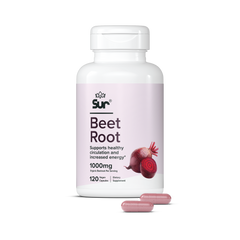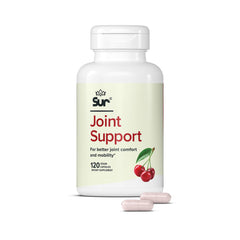When it comes to cholesterol, you can correct your levels with lifestyle, diet, and supplements. Lifestyle changes include prioritizing exercise and sleep, diet changes include avoiding fats and getting enough fiber and omega-3s, and cholesterol supplements can fill in the gaps.
Cholesterol Basics
First, it’s important to know how cholesterol works. When we say ‘cholesterol,’ we are referring to two kinds of lipoproteins: high-density and low-density (HDL and LDL). Both are naturally occurring in the body, and both are necessary for essential functions.
LDL is what is often called ‘bad’ cholesterol because, in excess amounts, it can clog and harden arteries, leading to the negative consequences we think of when we think of high cholesterol–heart disease and increased risk of heart attack and stroke.
HDL collects excess LDL and returns it to the liver where it is broken down. It’s important to understand the difference between the two, because the goal of achieving healthy levels of cholesterol is not just lowering the amount across your entire system. It’s about getting LDL to a healthy level and keeping HDL levels high
Medical Needs
It’s important to recognize that clinically-high cholesterol levels require medication and can’t be addressed through the means we’ll look at in this article. This is also true for those with conditions like thyroid disease, HIV, diabetes, and others that increase risk of heart disease and complicate the effects of high cholesterol. In cases like this, lifestyle or supplements to lower cholesterol might not be enough.
Diet Considerations
The first step to addressing cholesterol levels is watching what you eat (and what you don’t). Subtraction is more intensive for some diets, so we’ll start there.
What to Avoid
Trans Fats
These fats still exist in foods in small quantities and can add up quickly. Trans fats are doubly bad for cholesterol in that they both lower HDL levels and raise LDL levels. They are common in fried foods, commercial baked goods, refrigerated dough like that in frozen pizza and premade biscuits, and butter-like spreads like margarine.
Saturated Fats
Saturated fats are found mostly in animal products. Foods high in saturated fats include red meat (beef, lamb, and pork), butter, milk, cheese, and cream. By proxy, this also includes ice cream and many baked goods. Saturated fats are also found in coconut and palm oil.
Refined Carbohydrates
Just like cholesterol, not all carbohydrates are bad for you. Whole carbs are found in high levels in many vegetables, legumes, beans, and other natural foods.
Refined carbs, on the other hand, are carbohydrates that have been so thoroughly processed that they have essentially no value to the body other than as calories. Diets high in refined carbs have been linked to obesity, heart disease, and diabetes. They also contribute negatively to cholesterol levels.
Sugar
While the mechanism of this is not entirely understood, diets high in sugar cause the liver to produce more LDL and less HDL. Extra sugar is also transformed into triglycerides, which are fats that can have similar effects as LDL when found in excess.
What to Add
Fiber
Fiber naturally binds to LDL in the digestive track and removes it from your body before it can enter the bloodstream. You can find fiber in many fruits and vegetables, but some of the most concentrated natural sources are oats, beans, lentils, brussels sprouts, broccoli, and many nuts and seeds.
You can also get the fiber you need through supplements such as psyllium husk and Nutrim powder.
Omega-3s
Omega-3s reduce triglycerides and might increase HDL, though the details around the latter remain somewhat uncertain. They are found in certain fish (salmon, mackerel, anchovies, and sardines have some of the highest levels), seeds, and beans.
The Full Picture
Once you’ve got your diet sorted, you can look to make lifestyle changes. Regular exercise, sufficient sleep, and shedding extra weight can all help get your cholesterol levels closer to where they should be.
If you want to learn more about other options for addressing high cholesterol without medication, be sure to check out our post on alternative treatments to statins!



